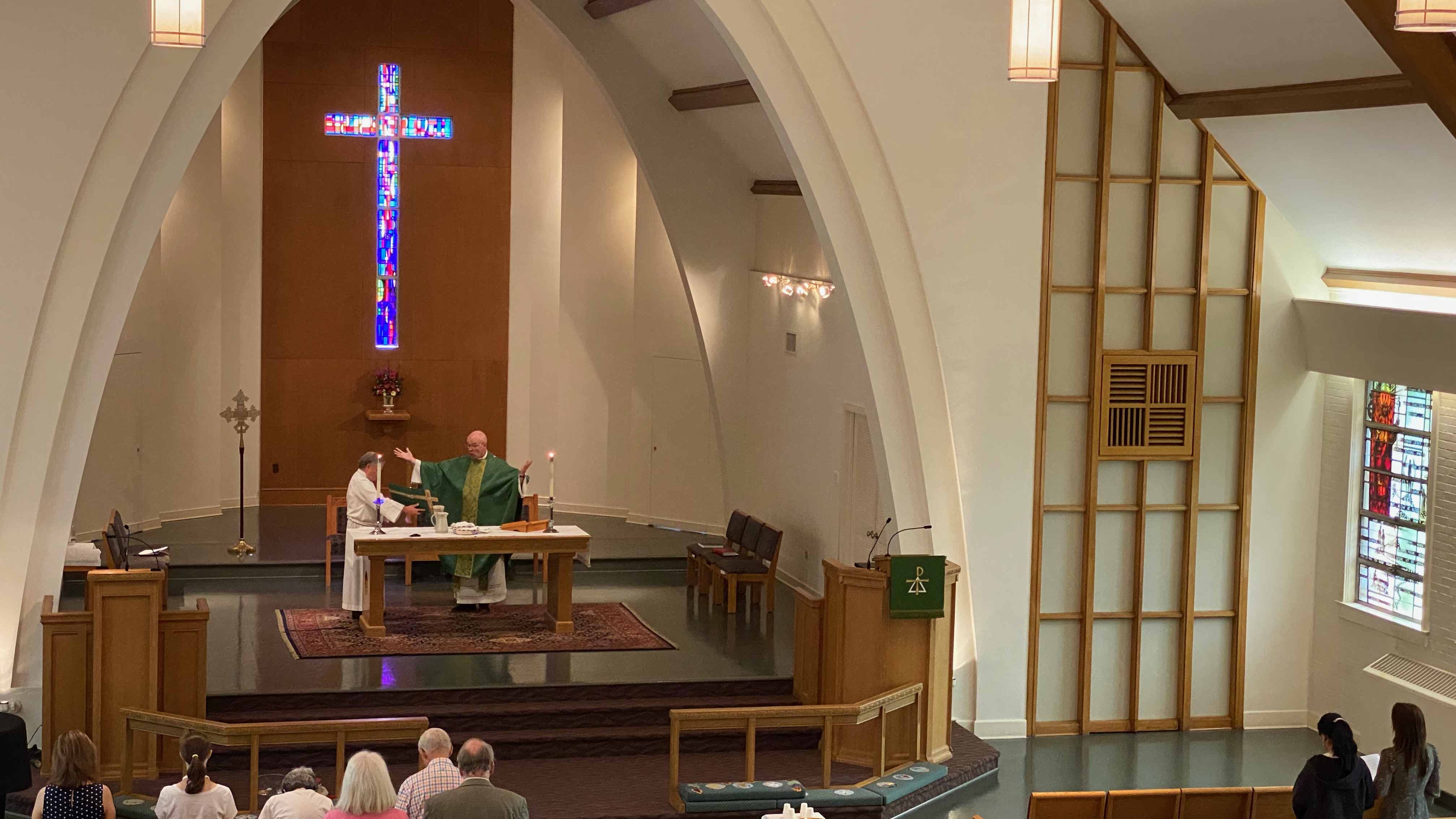Week of the Eleventh Sunday after Pentecost
Dear Friends in Christ:
This coming Sunday, August 15, is the day in our liturgical calendar set aside for the commemoration of Mary, Mother of Our Lord. In our worship, we will observe the 12th Sunday after Pentecost, honoring the central place of the Lord’s Day in our life together. That said, the commemoration of Mary is also a significant occasion that invites some focused attention. Thus, I here offer some reflections on Mary from a personal perspective, but also from my vantage point as a Lutheran pastor.
In my own piety and faith practice, Mary has never occupied a particularly prominent place, though I admit to having had some significant spiritual experiences in which Mary has played a central role. The place of Mary, or lack thereof, has been a feature of the kind of Lutheranism, or Protestantism more broadly speaking, that defines itself over against Roman Catholicism, the kind of negative identity that basically concludes that “I am Lutheran, or protestant, because I am not Catholic.”
However, it is important to acknowledge that Martin Luther himself continued to honor the place of Mary in Christian life as Theotokos, or God bearer, Mother of God. Here are Luther’s own words in his work on “The Magnificat,” and I quote at length to give you a good sense of Luther’s views:
“‘For he who is mighty has done great things for me, and holy is his name.’ The ‘great things’ are nothing less than that [Mary] became the Mother of God, in which work so many and such great good things are bestowed on her as pass [human] understanding. For on this there follows all honor, all blessedness, and her unique place in the whole of [humankind], among which she has no equal, namely, that she had a child by the Father in heaven, and such a Child. She herself is unable to find a name for this work, it is too exceedingly great; all she can do is break out in the fervent cry: ‘They are great things,’ impossible to describe or define. Hence [we] have crowded all her glory into a single word [Theotokos], calling her the Mother of God. No one can say anything greater of her or to her, though [they] had as many tongues as there are leaves on the trees, or grass in the fields, or stars in the sky, or sand by the sea. It needs to be pondered in the heart what it means to be the Mother of God.” Luther’s Works, vol. 21 (St. Louis: Concordia, 1956), 326.
The role of Mary in the Christian faith tradition arguably reveals more about God than it does about Mary herself. Indeed, one of the qualities of Christian saints is that they point beyond themselves to reveal God in Christ. What do we learn about God from Mary? In short, the God whom we confess, worship, adore, and serve is not a God who imposes divine will on human beings. This reality is a crucial feature of the Annunciation story, when the angel Gabriel visited Mary with the sacred word of Mary’s call to become pregnant with and give birth to God’s word made flesh in Jesus Christ. The Incarnation would not have occurred had it not been for Mary’s yes to the angel’s announcement in her willing assent: “Let it be to me according to your word” (cf. Luke 1:38). Thus, God calls human servants in such a way as to evoke their cooperation, their willingness to abide by the divine call. Moreover, the Holy Spirit inspires such willing cooperation when we cannot muster such assent to God’s will and call on our own steam. Thus, it was that “the Holy Spirit [came upon Mary], and the power of the Most High [overshadowed her]” (cf. Luke 1:35a). Then she was able to offer her ‘yes’ to God.
In addition to Mary’s role in pointing to God in Christ, Mary also reveals to us the nature of Christian discipleship. In crucial ways, Mary is the quintessential disciple of Jesus Christ. That is to say, as a follower of Jesus, her son, she herself at first was pregnant with the divine word and gave birth to that word who was Jesus of Nazareth. Mary’s discipleship began and was centered on her womb being full of the word and her giving birth to that word for the sake of the whole world. All disciples of Christ are called likewise to be pregnant with the word of God, to dwell in worshipful and studied ways with the word in scripture and in the sacramental life of the church, to internalize that word, to incorporate that word by the power of the Holy Spirit into the fullness of who we are, and then to birth that word in deeds of love of the neighbor and in witness to the God made known in Jesus Christ. In short, in modeling faithful Christian discipleship, Mary leads the way.
These perspectives on Mary may not add up to the kind of piety and devotion known in other Christian traditions such as Roman Catholicism and Eastern Orthodoxy, but they nonetheless suggest the crucial place of Mary in our Christian life together in terms both of what she reveals about God and what she demonstrates about the nature of discipleship of Jesus Christ.
With thanksgiving to God in Christ for Mary’s willing assent to the divine will. May we likewise be inspired to proclaim, “let it be to us according to God’s word!”
In Christ,
Pastor Jonathan Linman






